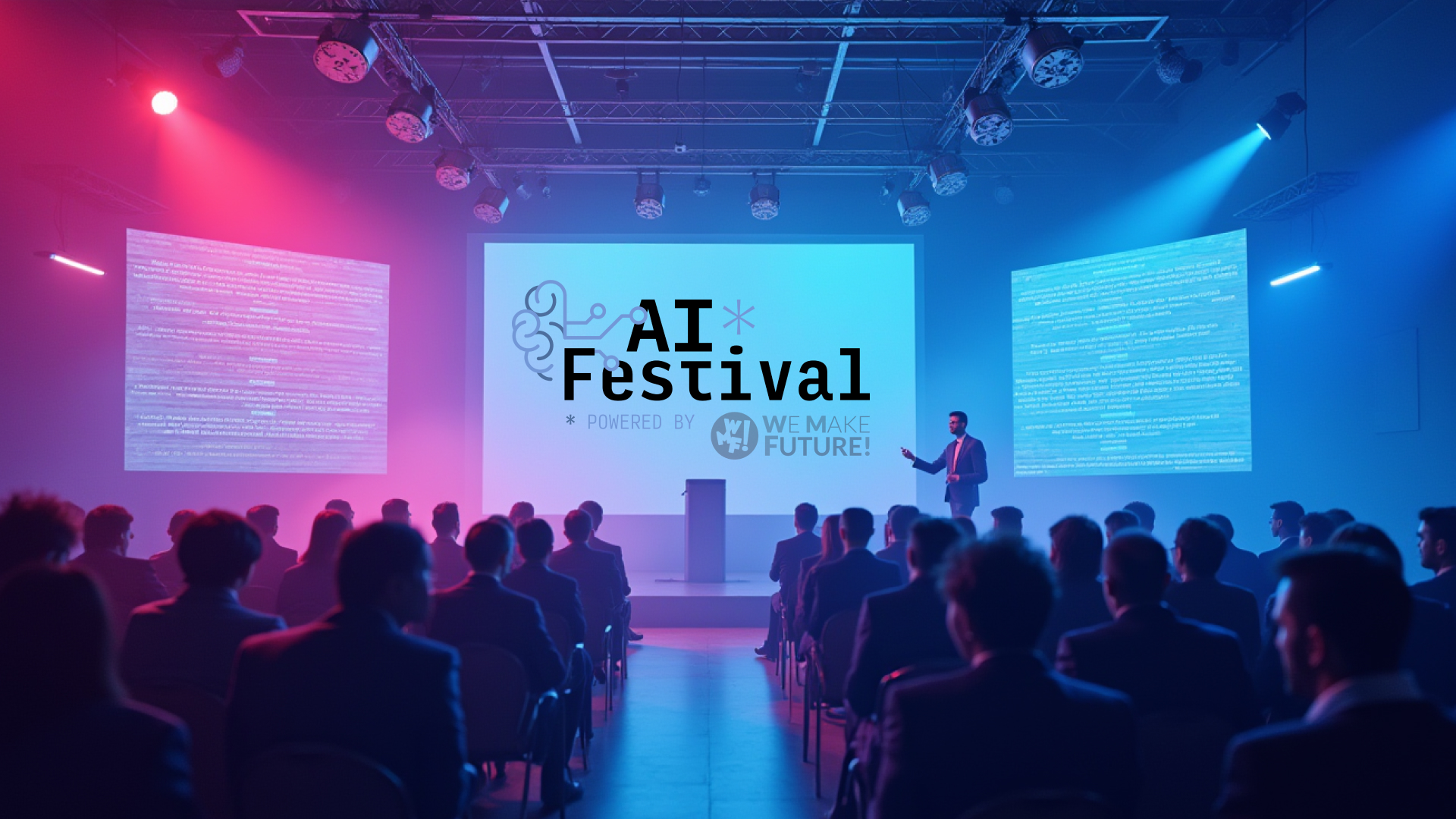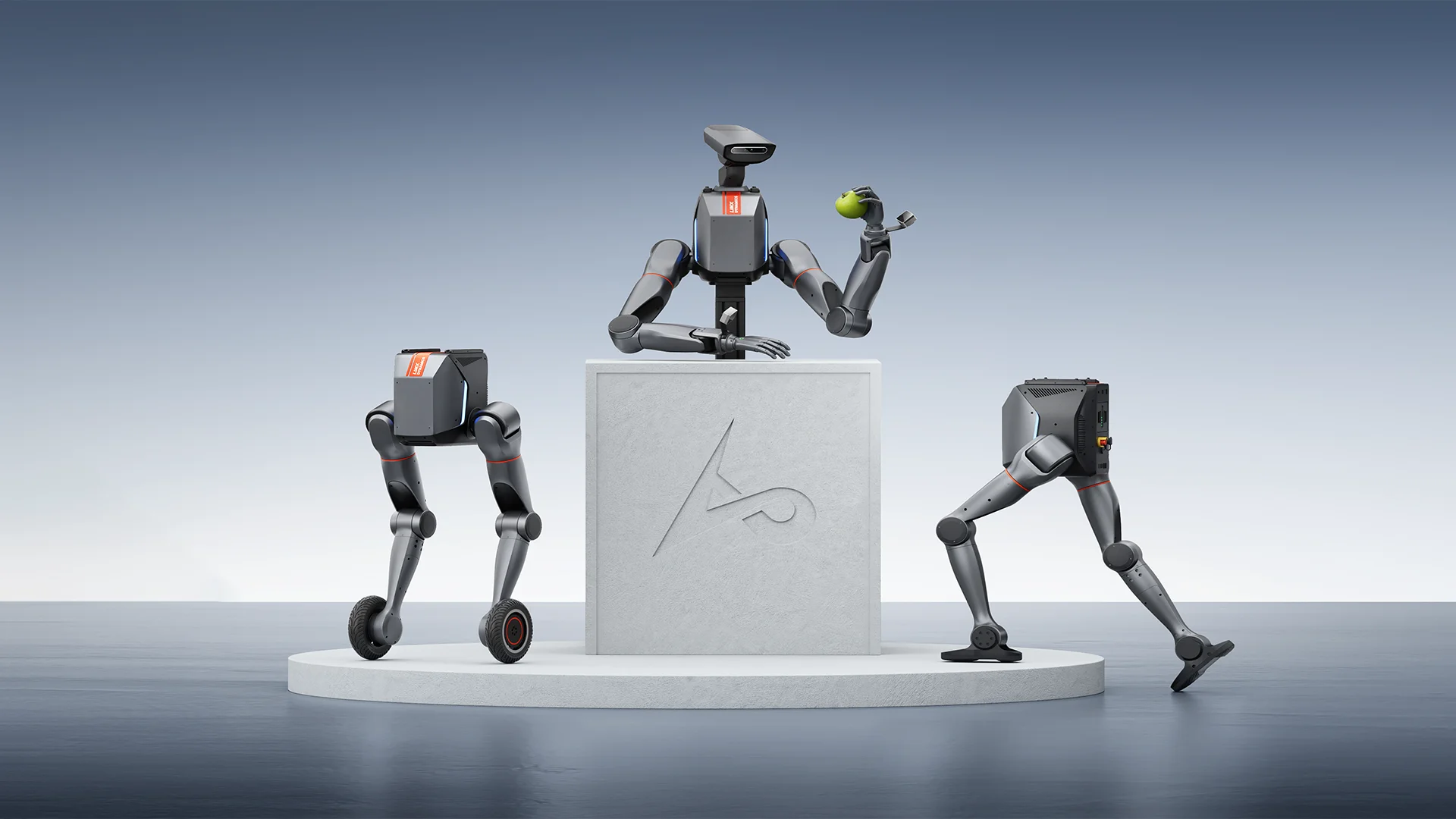The AI Festival, which took place on 26-27 February, is an event in the field of technology and artificial intelligence (AI) that brings together researchers, experts and enthusiasts from all over the world to explore the latest innovations and advances in AI. This year, the 2025 edition has attracted global attention with the presentation of cutting-edge technologies, stimulating debates on ethics and social impacts, and an impressive number of startups that are changing the face of various industries. But what exactly is the AI Festival and what new features has it brought this year?
What is the AI Festival?
The AI Festival is an annual event in Milan that explores the potential of artificial intelligence, highlighting the practical applications of this technology in a variety of sectors, from healthcare to sustainability, art to industry.The event brings together leading companies in the field of AI, researchers, experts, and enthusiasts, offering a unique opportunity for networking, learning and vision of emerging technologies.
This year, the AI Festival 2025 stood out for the variety and innovation of solutions presented, highlighting not only the technical capabilities of AI systems but also the importance of addressing privacy, ethics and social impacts. From new medical applications to creative solutions, the festival highlighted the potential of AI to transform everyday life.
The new technologies presented
Several products and innovations caught the eye at the festival, highlighting areas where artificial intelligence is really making a difference. Some of the key technologies and solutions presented are:
- Conversational AI and advanced chatbots Among the most discussed innovations, conversational AI models have progressed enormously. New versions of chatbots and virtual assistants show extraordinary understanding and interaction skills, with an emotional intelligence that makes them able to adapt to the tone and emotions of the user. Some companies have shown how these tools can improve the customer experience by providing personalized responses and increasing efficiency in call centers.
- Predictive Medicine and AI Diagnostics The healthcare sector was one of the most revolutionised areas by the AI solutions presented at the festival. Several startups have introduced platforms that use AI for disease predictive analysis, contributing to early and personalized diagnosis. These technologies can analyse huge amounts of medical data, from diagnostic images to health records, providing doctors with a powerful tool to diagnose and treat diseases more quickly and effectively.
- Artificial intelligence for sustainability Another hot topic was the use of AI to address environmental challenges. Many companies have introduced artificial intelligence-based solutions to optimize energy consumption, reduce carbon emissions and improve natural resource management. These intelligent systems allow data to be analysed in real time, contributing to a more sustainable management of cities and industries.
- Advanced robotics for agriculture Artificial intelligence is also changing agriculture, with robots that can autonomously monitor and manage crops. Agricultural robots, equipped with AI and sensors, can detect plant diseases, harvest fruits and even manage crops in a fully automated way. This represents a revolution for precision agriculture, increasing efficiency and reducing the use of pesticides and resources.
Startups presented
During the festival a number of startups and projects were presented that are making a splash. Here are some of the most interesting ones:
- CureAI – Automatic Medical Diagnosis CureAI presented an artificial intelligence-based platform that analyzes medical images to diagnose heart disease, cancer and other conditions with extraordinary precision. During the festival, the startup showed how its technology can reduce diagnosis times and improve hospital efficiency.
- EcoMind – Sustainability and Energy Optimization EcoMind has developed an intelligent energy management system that optimizes the energy consumption in homes and businesses. Thanks to sensors and AI, EcoMind is able to analyze consumption in real time and suggest improvements, contributing to the reduction of costs and carbon emissions.
- ScribeBot – Creative Writing with AI ScribeBot is an AI-powered writing assistant that helps journalists, writers and creatives generate content. The platform analyzes the context and suggests changes, improving the quality and speed of writing. Some publishers have already adopted ScribeBot to optimise the production of articles and online content.
- RoboFarm – Precision Agriculture Robotics RoboFarm presented autonomous robots that use AI to harvest fruits, monitor plant health and optimize crop management. These robots, thanks to the use of advanced sensors, are able to reduce pesticide use and improve crop yields.
Considerations for AI festival 2025
The AI Festival 2025 was, without a doubt, an event of significant scale that offered a comprehensive overview of innovations and advances in artificial intelligence. Through its many presentations, discussions and workshops, the event highlighted the profound impact that AI is already having on various sectors, and how this technology is transforming not only the way we work but also how we live every day.
A true catalyst for innovation
The AI Festival 2025 demonstrated how artificial intelligence is advancing rapidly, with numerous concrete applications that go beyond academic theory and research. The startups presented have shown that AI is no longer a futuristic technology, but it is already here, able to solve real problems in various fields, from medicine to agriculture, from sustainability to creative writing. Solutions like CureAI, which improves medical diagnosis, or EcoMind, which optimizes energy consumption, are just some of the tangible examples of how AI is already having a positive impact on our daily lives.
Sustainability and social impacts: the major challenges
A recurring theme during the AI Festival 2025 was the use of artificial intelligence to solve some of the most pressing global challenges, in particular environmental sustainability. The technologies presented by startups such as EcoMind, which deals with energy optimization, highlight how AI can be a key ally in the fight against climate change, reducing waste and improving efficiency. At the same time, however, we cannot ignore the impact that these technologies have on our economic and social ecosystem. As highlighted in many industry articles, the adoption of AI brings with it crucial questions related to inequality, work automation and privacy. Experts stressed the importance of ensuring that these solutions are implemented in a fair and responsible manner.
The need for an ethical and regulated approach
One of the most discussed aspects during the festival was that of the ethical and legal implications related to the use of artificial intelligence. Many interventions highlighted the urgent need for clear and robust regulation, balancing benefits against potential risks. Issues such as the protection of privacy, the use of personal information and the transparency of algorithms were at the centre of discussions. Concerns about algorithmic discrimination and data misuse are among the biggest challenges facing the industry in the coming years. The AI Festival highlighted how crucial it is to promote an ethical use of AI, in order to prevent technology from being exploited in a harmful or unfair way.
The revolution of work: new opportunities and risks
Many articles on the AI Festival 2025 have highlighted the theme of work in the age of artificial intelligence. While the solutions presented promise to optimize processes and increase efficiency, there is a growing concern about workplace automation. Sectors such as customer service, data analysis and even medicine are seeing the adoption of AI systems that could reduce the need for human intervention in some tasks. However, the festival also highlighted the opportunities offered by AI, such as the creation of new trades and the emergence of professions that require advanced technological skills. The future of work, therefore, appears to evolve significantly, with AI playing a central role in defining new employment dynamics.
A more connected and interactive world
The applications of artificial intelligence presented at the festival are not limited to traditional sectors. The presentation of technologies such as those in the field of automatic writing, through startups like ScribeBot, or in advanced voice interactions, has shown how AI is also changing our way of communicating. Automatic writing, for example, is not just an aid to content generation, but a profound change in the way we create and share information. Similarly, increasingly sophisticated chatbots and AI applications in public services are creating a more connected and interactive world where technology not only supports but accompanies the user in everyday life.
Conclusion
The AI Festival 2025 has once again demonstrated how artificial intelligence is transforming our world. The innovations presented not only offer new opportunities in terms of efficiency and creativity, but also raise important questions about how to manage these powerful technologies ethically. With the growing impact of AI in everyday life, it will be crucial to continue monitoring its applications, ensuring that artificial intelligence is used responsibly and for the common good.






